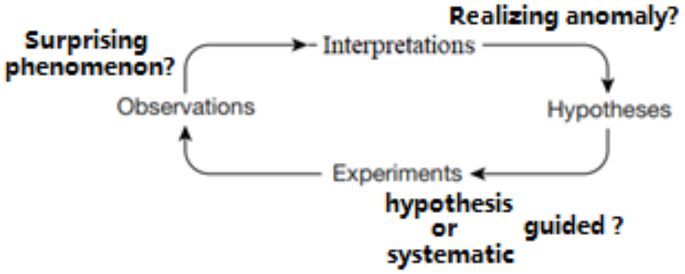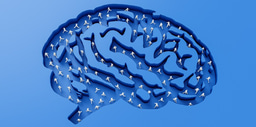Does GenAI lack human creativity to achieve scientific discovery?
Published in Computational Sciences and Biomedical Research

At Scientific Reports, we are pleased to highlight a newly published article on Generative AI and its creative capacity to make scientific discoveries from scratch. Gen AI, which relies on large language models (LLMs), has sparked worldwide curiosity about whether these systems have what it takes not just to summarize but also to progress knowledge. This current study explores the dimensions of creativity with GenAI, addressing the current limitations, biases and ethical concerns in connection with scientific discovery. This study is important in understanding whether and how we can use AI productively in shaping the future of science.
The researchers in this study provided OpenAI’s ChatGPT-4 access to an in silico semi-automated molecular genetic laboratory (SAMGL). The study put ChatGPT4 into the role of a scientist responsible for formulating a hypothesis and designing experiments to support that hypothesis. The foundational framework of the simulation was based on Monod’s microbial model, which was then evaluated and compared with human study participants who were also provided with the same task as the Gen AI. The human study participants were recruited from a university setting.
The study found that, while ChatGPT4 lacks the key human attribute of curiosity, it can still be productively incorporated into the process of scientific discovery. ChatGPT generated five hypotheses and designed 12 supporting experiments, confirming each with high confidence. In contrast, many humans participants in the study embarked on exploratory experiments, using the outcomes to inform and refine their hypotheses. The researchers here have shown that ChatGPT4 utilizes a statistical and logic-driven approach to formulate a hypothesis drawing from its knowledgebase. Unlike humans, who formulated experiments sequentially, ChatGPT4 designed them all at once, with fewer experiments in total. The researchers found that humans outperformed ChatGPT4 in the quantity and quality of their proposed experiments, while ChatGPT4 outperformed humans in terms of speed of information processing.
This study demonstrates that while recent GenAI may be suitable to help achieve incremental discoveries, it lacks the “imagination” to produce groundbreaking scientific discoveries.
Activating “creativity” or “imagination” functions within GenAI could be essential for reaching the cognitive threshold required for human-like discovery. Along these lines, the authors propose the integration of biologically inspired neural networks and quantum computing with machine learning systems. This could enable real-world learning and machine awareness. This article therefore serves as a compelling precursor to a future where, with the right innovations, GenAI could make a Nobel-worthy or paradigm-altering discovery. However, for now, this capacity remains limited when compared to the creative processes of humans.
Follow the Topic
-
Scientific Reports

An open access journal publishing original research from across all areas of the natural sciences, psychology, medicine and engineering.
Related Collections
With Collections, you can get published faster and increase your visibility.
Reproductive Health
Publishing Model: Hybrid
Deadline: Mar 30, 2026
Obesity
Publishing Model: Hybrid
Deadline: Apr 24, 2026



Please sign in or register for FREE
If you are a registered user on Research Communities by Springer Nature, please sign in